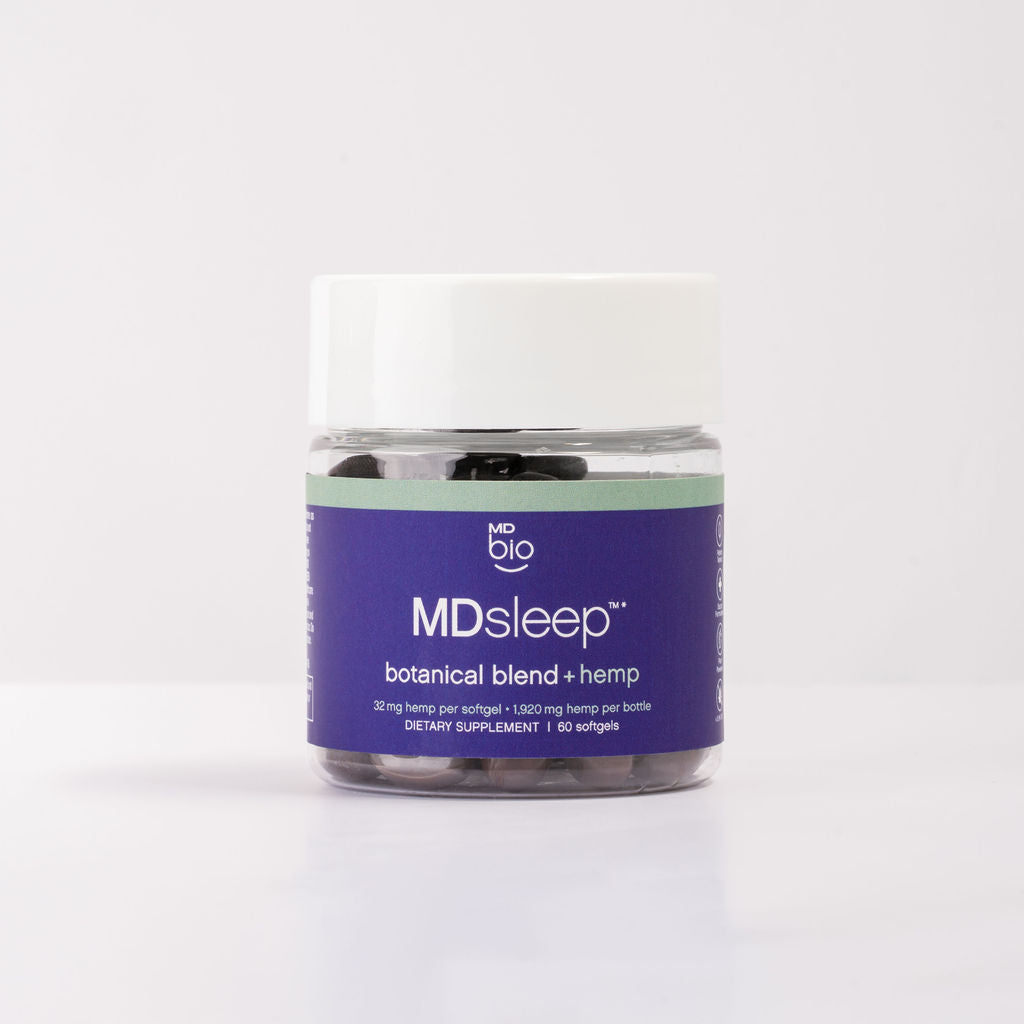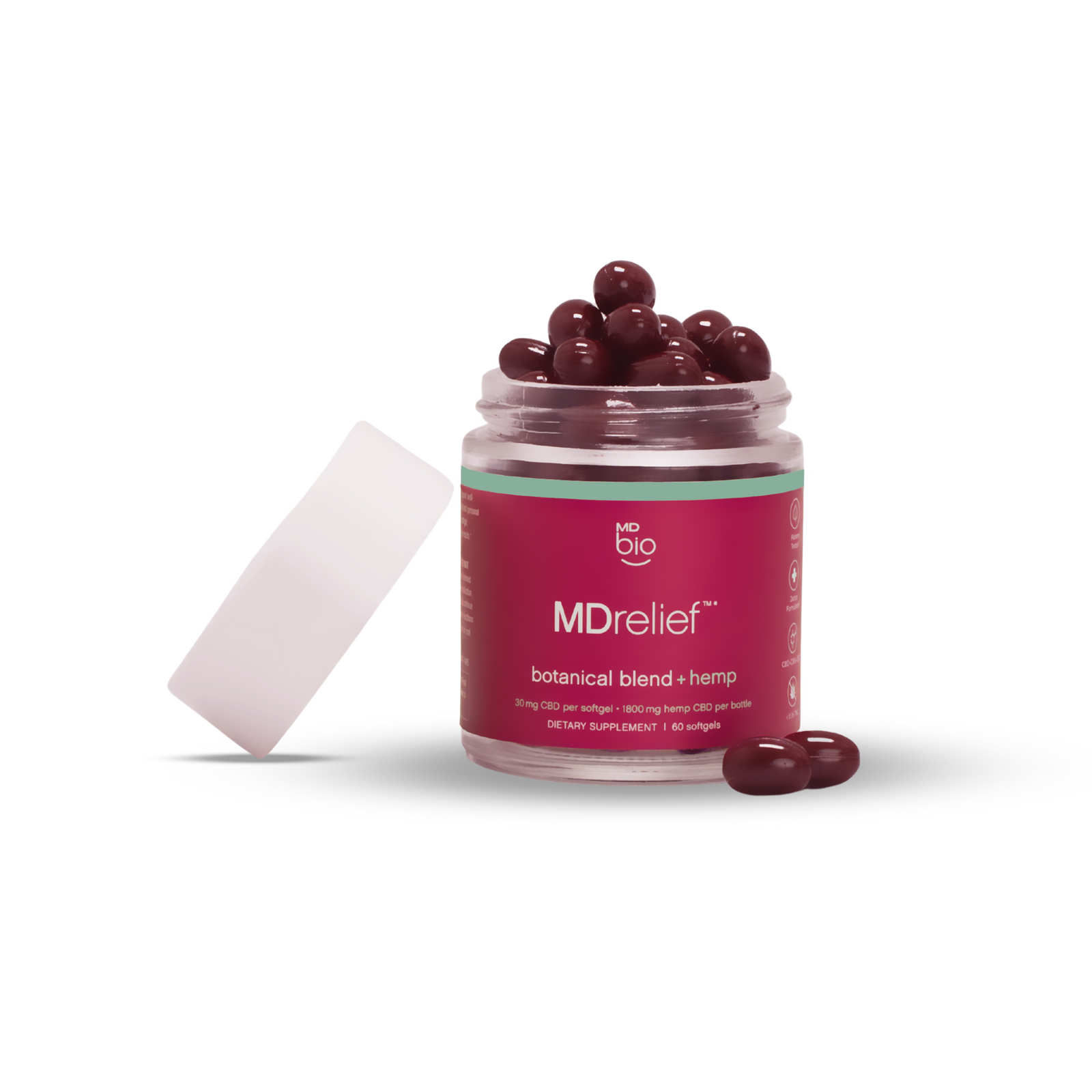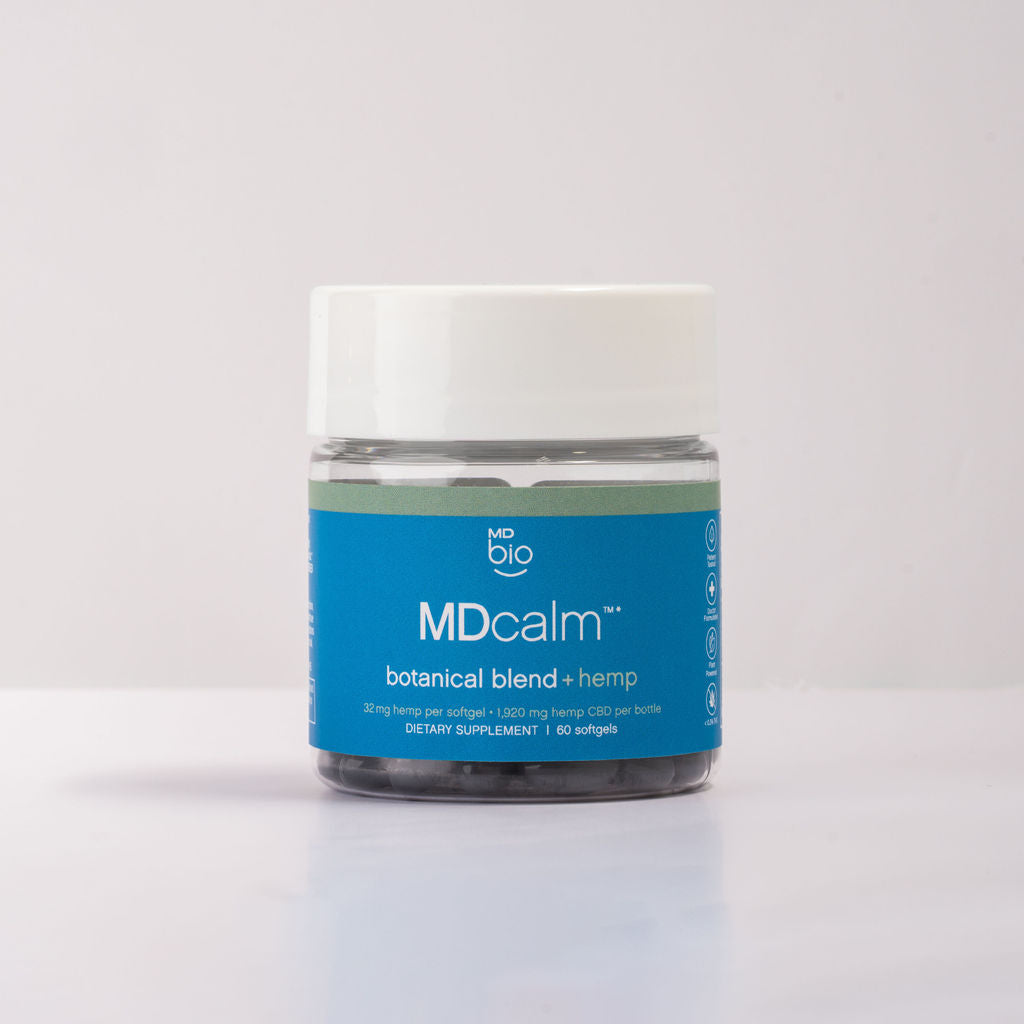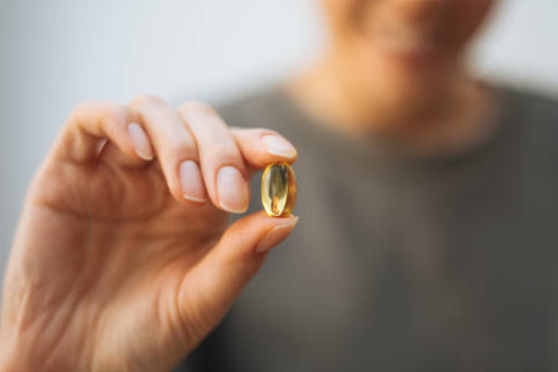
Post-traumatic stress disorder, known as PTSD, results from life-threatening experiences like disasters and violent crimes. Anyone can experience the overwhelming symptoms through flashbacks, nightmares, or behavioral changes such as depression and insomnia. Treating these symptoms and experiences with medication doesn't always work, which is why natural remedies are a viable option.
Many herbs can be used in various ways to reap their rewards. Some can be brewed into teas for a relaxing drink, and others can be applied topically to help alleviate symptoms. Take a look at the herbs that can bring consistent relief and relaxation to PTSD symptoms naturally.
Valerian Root
Used historically as atreatment for insomnia, valerian root can be consumed in a calming tea. PTSD disturbs normal sleep patterns, making it difficult to fall asleep or stay asleep. Valerian root extract can be used daily to reduce the effects of PTSD-induced insomnia. Western medications can result in unpleasant side effects, but natural medicine can be an easier and more comfortable alternative.
While Valerian root is a wonderful and proven alternative for PTSD symptoms, there are a few people who should consult their primary care physician before trying herbs for PTSD. People with liver disease and women who are pregnant or breastfeeding should avoid or wait before taking the extract as a precaution and try another method of using herbs for emotional trauma.
Mint (Peppermint)
Peppermint not only serves as one of several herbs for PTSD and anxiety, but it also has a cooling effect that can be refreshing. Mint can be used to help clear the mind and focus, allowing you to center yourself and calm any PTSD symptoms you experience.
Mint is commonly used to help treat stress and anxiety by promoting a clear mind with a crisp feeling and can be consumed in tea or supplements. The extract can be applied topically or diffused to permeate the room and surround yourself with a calming aroma to alleviate PTSD symptoms.
Hemp Oil Extract (CBD)
Cannabidiol (CBD) is part of the cannabis plant, but does not trigger a “high.” However, it has proven to show a relaxing effect on the central nervous system, relieving some of the stress from PTSD-related symptoms. Products that contain CBD can be consumed or applied topically to help reap the benefits of the herbs for emotional trauma relief.
CBD, when used with other herbs for PTSD and anxiety, has the potential to help with sleep-related struggles brought about by mental disorders. If you're concerned about how CBD might affect you, you can consult your primary care physician beforehand.
Lavender
When discussing herbs for PTSD, lavender is one of the most calming natural supplements. It can be consumed in tea, applied topically, or diffused for a pleasant atmosphere. Lavender is also known for its anti-inflammatory properties, making it one of the most beneficial herbs for emotional trauma because it can reduce mental and physical strain.
For a more relaxing way to enjoy lavender's calming effects, using the flowers or oil from the plant when you draw a bath creates a full-body experience that relieves tension and anxiety. The next time you need relief from your symptoms, try a bit of lavender to help unwind and relax.
Ashwagandha
Used in many traditional medicines outside the Western world, ashwagandha is one of several herbs for PTSD and anxiety. Theproperties of ashwaghanda allow it to lower levels of cortisol, the stress hormone, and improve sleep quality. Ashwaghanda is taken in tablet or liquid form for easy consumption.
If you have any concerns, your primary care physician can discuss any risks with you. When taken in small doses, it provides relief from PTSD symptoms such as anxiety. Regularly taking ashwaghanda shows improvement in stress levels, reducing the strain felt by mental exhaustion and disorders.
Lemon
This citrus is known for calming properties, whether diffused in a room or infused with tea. It's one of several herbs for emotional trauma, helping to reduce anxiety and insomnia. It's also used to improve cognitive function. The sting of citrus is renowned for the sharp taste that keeps you alert and focused.
To treat PTSD symptoms, try using a lemon balm or lemon extract to relieve the weight of stress from your body. This can prove highly effective and calming for those suffering from anxiety and insomnia. If the taste of lemon is a problem, blending it in a tea can remove most of the flavor without sacrificing the benefits of the balm.
Passionflower
This delectable flower has impressive characteristics, including acting as a muscle relaxant. Testing it out may prove beneficial for those who suffer from tightened muscles as a result of PTSD tension. The flower is best brewed in tea or consumed in tablet form. While the passionflower is one of several herbs for PTSD, it is not meant to be taken long-term in high doses.
Additionally, if you're pregnant or nursing, finding an alternative means for relief is a good idea. If you have any questions, your primary healthcare provider can help you decide if passionflower is the best remedy for your symptoms. It can greatly reduce the strain you feel from PTSD, but it's important to try it out before starting additional activities under it's assistance.
Chamomile
When brewing tea, the chamomile plant is well-known for its relaxing properties. In fact, it's a go-to tea for many hoping to reduce stress and anxiety through natural means. Chamomile tea acts as a sedative, helping lull you to sleep when insomnia creeps in. For those struggling with PTSD, chamomile is one of many beneficial herbs for emotional trauma and rest.
Mood swings, agitation, and depression can be assuaged with chamomile, especially when brewed in tea. This traditional herbal remedy will administer a calming effect to take the edge off of symptoms, allowing PTSD sufferers to experience some relief while enjoying a warm cup of tea to help them sleep.
Green Tea
Green tea is traditionally made from Camellia leaves, taking the unoxidized parts of the plant to brew a warm beverage. This brew can be used to improve both the quality and quantity of sleep in those suffering from PTSD-related symptoms. Antioxidants in the leaves also help reduce stress, anxiety, and depression that PTSD can bring on. Drinking green tea can alleviate these symptoms and promote balance in your body.
When it comes togreen tea, studies show there are many benefits in treating symptoms of PTSD and promoting relaxation. The amino acids in green tea leaves are responsible for this effect and produce natural results that help you feel better without any of the invasive or synthetic western medicine additives.
Rooibos Tea
Also known as red bush, this type of tea can reduce cortisol levels, bringing stress down to a manageable level. Unlike other teas, like green tea, rooibos doesn't come from a tea bush, meaning that there is no caffeine or tannin in the mixture when brewed. This allows you to reap the calming benefits without risking any additional stress or energy stemming from the caffeine. It also means that you can avoid the bitter taste!
The tea is rich in antioxidants and is known to boost memory retention and mood, which can help with any mood swings brought on by PTSD. Try a cup of this blend knowing that you can breathe easier and relax after a sip.
Kava kava
Kava is known for having a positive short-term effect on stress and anxiety, along with other herbs for PTSD. The herb is native to the Pacific islands, used for both ceremonial and mood-altering purposes. It's intended to relieve stress and improve one's mood, withstudies to support those goals.
While kavawas found to be safe in that study, the FDA warns that kava supplements may cause liver damage over time. The World Health Organization determined that the connection was unclear, but it may be worth consulting your healthcare physician before adding kava into your regimen regularly.
Rhodiola Rosea
Rhodiola rosea is a promising treatment used in European and Asian traditional medicines. While studies are still being conducted and evaluated in the U.S. and other western countries, Europe and Asia are familiar withherbs for PTSDand anxiety, like rhodiola. It's renowned for its ability to improve mental health by reducing stress and depression while improving cognitive function.
This natural tonic can greatly improve your health by adapting to adjust numerous qualities, such as anxiety, depression, fatigue, and cognitive awareness. These attributes, when agitated by PTSD flare-ups, may become uncomfortable or unbearable. Try utilizing the natural benefits of rhodiola to help calm and relieve tension before seeking synthetic medicines.
PTSD Natural Supplements Conclusion
Post-Traumatic Stress Disorder (PTSD), a mental health condition triggered by experiencing or witnessing a traumatic event, affects millions globally. PTSD symptoms, ranging from severe anxiety, nightmares, and uncontrollable thoughts about the traumatic event, significantly impair daily life. The quest for alleviating PTSD symptoms has led to exploring natural supplements as a complementary approach to traditional PTSD treatment, like cognitive processing therapy and selective serotonin reuptake inhibitors.
Alleviate ptsd symptoms
These natural remedies aim to reduce symptoms and improve overall well-being in PTSD sufferers. Supplements such as Valerian root, known for its muscle relaxant properties, can promote relaxation and restful sleep, addressing common sleep disturbances in PTSD. Vitamin D, vital for brain function and mood regulation, may also help alleviate symptoms associated with chronic stress and improve cognitive function. Integrating these supplements with a healthy lifestyle, including a nutritious diet and regular exercise, can enhance physical health and emotional regulation, thereby reducing PTSD symptoms.
Ingredients like valerian root, lavender, mint, ashwaghanda, and hemp extract can be used to help alleviate the stress of PTSD symptoms naturally. MDBio has manybeneficial products that contain these powerful ingredients to promote a natural way of finding relief. Try them for yourself to see how a natural remedy and supplement can put your body at ease.
Other Resources
ptsd natural plant herbs
Studies show that herbal medicine is highly effective at treating symptoms of ptsd, also known as posttraumatic stress disorder. Stress disorder effects the central nervous system. Some of the best herbal medicine is ginkgo biloba kava root, kava kava, lemon balm rooibos tea, and chamomile tea because it helps with reducing anxiety, improving sleep quality and regulating stress hormones. Post traumatic stress disorder is a type of mental disorder.
post-traumatic stress
You can treat ptsd symptoms using herbal medicine. With posttraumatic stress, you get symptoms of ptsd, which triggers the central nervous system. There is a ptsd treatment at st johns wort using nutritional supplementation. With post traumatic stress disorder, you are suceptible to panic attacks. You can use plant medicine for stress management if you are suffering from ptsd, you may also be experiencing depression and anxiety. Johns wart require user consent for gdpr cookie consent set by gdpr. The ptsd experience comes with depression anxiety, chronic stress, and anxiety disorder.
natural herbs for stress disorder
If you develop ptsd as a result of traumatic events, you can take a selective serotonin reuptake inhibitor. There are alternatives for posttraumatic stress. Medical herbalism is being used as a homeopathic remedy. Chinese herbal natural treatments like dong quai and ginkgo biloba herbal teas can help stress disorder ptsd. Chinese medicine remedies for ptsd also help with brain function. Music therapy has also been used as a treatment for ptsd. Integrative medicine makes the link between the adrenal gland and traumatic stress based on placebocontrolled trials. For a traditional chinese medicine health practitioner, herbal formulas are great for those diagnosed with ptsd.
ptsd
herbal
trauma
green tea
ayahuasca
herbalism
- Uncover the synergy and differences between Ashwagandha and Valerian Root in our latest blog post: Ashwagandha and Valerian Root: Synergy and Differences.
- Explore our top herbal picks for pain relief and inflammation in our guide: Herbal Pain Relief: Our Favorite Herbs for Soothing Aches and Reducing Inflammation.
- Explore our guide to the 8 best supplements proven to boost the immune system for enhanced health and vitality.
- Unleash the Magic of Sleep: Explore Our 6 Insomnia Herbs for Natural Remedies! Transform your nights.
- Explore the soothing world of herbal remedies for stress in our latest blog. Discover tranquility naturally with our Doctor-approved tips!












